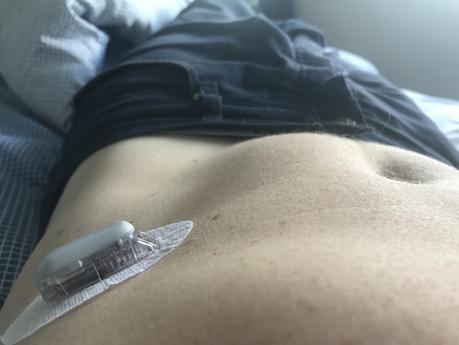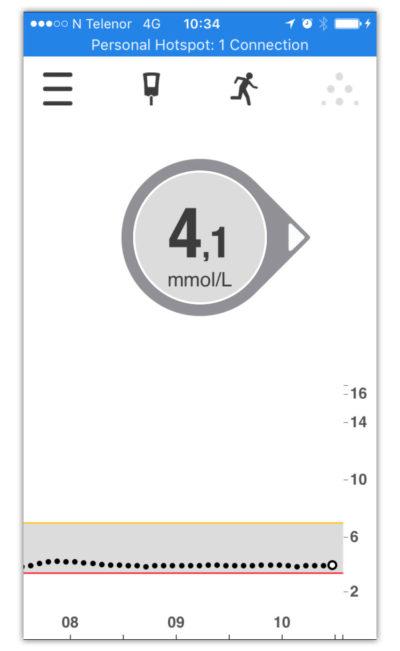
Over the next few months, we'll be testing the impact different foods and lifestyle choices have on blood-sugar levels.
To do this, I will wear a constant-glucose-monitoring device that measures blood-sugar levels 24/7. We recently got the device, and I put it on immediately.
What would you like us to test?
How the device works
1. A blood-glucose sensor and transmitter is inserted into the body.
2. The sensor measures glucose levels just underneath the skin.
3. A transmitter attached on top of the sensor sends glucose data over bluetooth to an iPhone app.
4. An iPhone app displays the glucose data.
Here's what the data can look like:

What we're going to use the device for
First we'll doing some tests to make sure everything is working properly.
After that, we'll start testing the impact different foods and lifestyle choices have on my blood sugar. For example, what do you think will happen when I'm:
- drinking coffee,
- drinking alcohol,
- consuming artificial sweeteners,
- eating different types of low-carb foods,
- eating different types of high-carb foods,
- eating dairy,
- eating low vs. high amounts of protein,
- exercising,
- fasting,
- in optimal ketosis vs. not?
We plan to test all of the above and more. When we have tested something, we'll write a short blog posts about it.
Please note: This is a n=1 self experiment and my findings may not apply to you. I am a 36-year old insulin-sensitive male, weigh 152 pounds, exercise for 10-15 minutes five times a week, with no history of obesity or diabetes.
What would you like us to test?
Feel free to let us know in the comments below.
Earlier tests
Are you interested in my earlier tests? Check out this earlier series of 3 posts:
- Why You're Not in Ketosis
- How Much Protein Can You Eat in Ketosis?
- What to Eat in Ketosis

